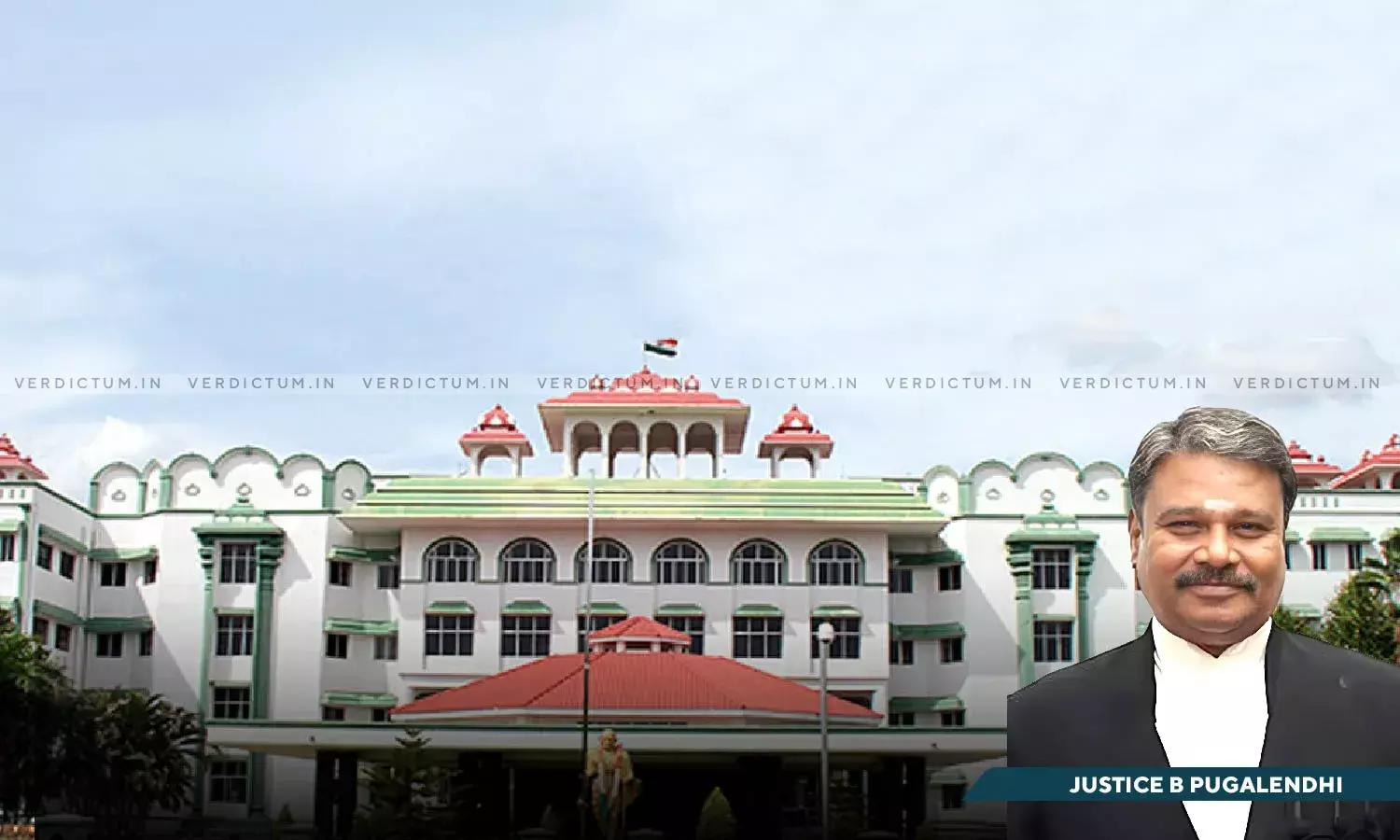Refusal To Call For Complainant’s Voice Sample Not Justified When It Is The Only Means To Conduct Scientific Comparison: Madras High Court
The Criminal Revision before the Madras High Court was filed against the order whereby the application filed by the accused for securing the voice sample of the de facto complainant was dismissed.

Justice B. Pugalendhi, Madras High Court, Madurai Bench
The Madras High Court has ordered the Trial Court to secure the voice sample of the complainant in a corruption case for the limited purpose of expert comparison. The High Court held that the refusal to call for the voice sample, when it is the only means to conduct a scientific comparison, cannot be justified merely on the plea of privacy.
The Criminal Revision before the High Court was filed against the order whereby the application filed by the petitioner/accused seeking forensic examination of certain audio and video recordings and for securing the voice sample of the defacto-complainant was dismissed.
The Single Bench of Justice B. Pugalendhi said, “Thus, the refusal to call for the voice sample of PW-2, when it is the only means to conduct a scientific comparison, cannot be justified merely on the plea of privacy, especially when the sample is sought under judicial supervision and for the limited purpose of expert analysis in a pending trial.”
Advocate V.R. Shanmuganathan represented the Petitioner, while Government Advocate (Crl. Side) A.S.Abul Kalam Azad represented the Respondent.
Factual Background
The petitioner, who served as the Electrical Inspector, has been facing trial under Section 7(a) of the Prevention of Corruption Act, 1988. It was alleged that he demanded and accepted illegal gratification of Rs 8,000 from the complainant, an Electrical Contractor, for issuing a safety certificate for a 20 KVA generator. The petitioner was arrested in the year 2018, pursuant to a trap laid by the Vigilance and Anti-Corruption Wing. The trial is presently at the stage of examination of defence witnesses.
The petitioner relied on a video recording, allegedly capturing a conversation between the wife of LW-7 and the petitioner, wherein reference was made to the removal of CCTV footage by the investigating agency. The petitioner asserted that this recording was directly relevant to the defence plea of suppression of crucial evidence by the prosecution. The trial Court had summarily dismissed the application.
Reasoning
The Bench noted that the impugned order of the trial Court revealed that the application was dismissed on three principal grounds: the video recording was made four years after registration of the FIR; the persons appearing in the recording were not examined; and the possibility of tampering, as suggested by DW-1, rendered the recordings suspect. The Bench was unable to accept the reasoning of the trial Court in its entirety.
“The fact that the video was recorded at a later point in time does not, by itself, render it inadmissible or irrelevant. The conversation captured therein, if authentic, may lend credence to the allegation of suppression of CCTV footage, which is a matter with potential bearing on the integrity of the trap proceedings”, it said while also adding, “As regards the voice recordings in Ex-D6, their proximity to the alleged incident, including a conversation on the very day of the trap, makes them intrinsically relevant. Whether these recordings support or rebut the allegations is a matter for trial, but they cannot be excluded from scientific scrutiny merely on speculative grounds.”
Referring to the judgments of the Apex Court, the Bench said, “From the above precedents, it is clear that the Right to privacy, like all fundamental rights, can be reasonably curtailed when there is a larger public interest involved.” The Bench also held, “The petitioner, like any accused, is entitled to a fair opportunity to disprove the allegations against him. Denial of access to forensic comparison in the face of specific electronic material forming part of defence evidence amounts to curtailment of such a right.”
Allowing the Criminal Revision Petition, the Bench ordered the Trial Judge to permit the forensic examination of the pen drive and the video recording by a competent Government Forensic Laboratory, by fixing an outer time limit. The Bench also asked the Trial Court to take necessary steps to secure the voice sample of the complainant, under due process, for the limited purpose of expert comparison.
Cause Title: C.J. Christopher Signi v. State of Tamil Nadu (Case No.: Crl.RC.(MD)No.475 of 2025)
Appearance
Petitioner: Advocate V.R. Shanmuganathan
Respondent: Government Advocate (Crl. Side) A.S. Abul Kalam Azad

